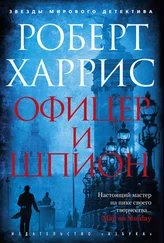They motored on in silence along the narrow country roads for the best part of an hour. It was colder now. Legat kept his hands in his coat pockets. He wondered about where he was being taken, what he should say when he arrived. To this day he had no idea whether Hartmann knew about his act of betrayal. He had always assumed he must have done: why else would he never have got in touch in all the years since? He had also written to Leyna — two letters full of love and remorse and pompous moral lectures; in retrospect he was glad they had both been returned unopened.
Finally, they turned off on to a long drive. The headlights picked out neatly trimmed grass verges and low iron railings. Ahead was the shape of a large house — a manor house, it would have been in England — with outbuildings. In a small round window beneath the eaves a solitary light was burning. They passed through an arched gateway and pulled up on a cobbled forecourt. Hartmann switched off the engine.
‘Wait here.’
Legat watched him walk towards the door. The front of the house was covered by ivy. In the moonlight he could now see that the upper windows were barred. He had a sudden presentiment of horror. Hartmann must have rung a bell. A minute later, a light went on above the door. It was opened from the inside — a cautious crack at first, and then wider, so that Legat could see a young woman in a nurse’s uniform. Hartmann said something to her, gestured to the car. She leaned around him to look. There was a discussion. Hartmann raised his hands a couple of times, making some point or other. At last she nodded. Hartmann touched her on the arm and beckoned to Legat to join them.
The hall smelled of overcooked food and disinfectant. Legat registered the details as he passed them: the carved Madonna above the door, the noticeboard covered in green baize and studded with pins but with no notices, the wheelchair at the bottom of the staircase, a pair of crutches beside it. He followed Hartmann and the nurse up to the first floor and a little way along a passage. The nurse had a large bunch of keys attached to her belt. She selected one, unlocked a door. They waited while she went inside. Legat looked at Hartmann, hoping for an explanation, but he wouldn’t meet his eye. The nurse reappeared. ‘She’s awake.’
It was a small room. The iron bedstead took up most of it. Her head was propped up on the pillow, a thick white nightgown buttoned to her throat. Legat would never have recognised her. Her hair was cut mannishly short, her face was much fatter, her skin waxy. But it was the lack of animation in her features, in her dark brown eyes especially, which rendered her a stranger. Hartmann went forward and took her hand and kissed her forehead. He whispered something to her. She gave no sign of having heard. He said, ‘Hugh, why don’t you come in and say hello?’
With an effort Legat walked to the side of the bed and took her other hand. It was plump, cool, unresponsive. ‘Hello, Leyna.’
Her head turned slightly. She looked up at him. For an instant her eyes narrowed a fraction and it seemed to him that perhaps something moved there. But afterwards he was fairly sure he had imagined it.
On the drive back to Munich Hartmann asked Legat to light him a cigarette. He lit it, placed it between Hartmann’s lips, then took one for himself. His hand was trembling. ‘Are you going to tell me what happened to her?’
Another silence. Eventually Hartmann said, ‘I can tell you as much as I know, which isn’t much — we split up after Munich, as you might expect, and I lost touch with her. She was too much for me. Apparently, she went back to Berlin and started working for the communists more seriously. They had a newspaper — Die Rote Fahn — she was part of that. After the Nazis came to power, they banned it, but it carried on publishing underground. As I understand it, she was caught in a raid in thirty-five and sent to Moringen, the women’s camp. She was married by then, to a fellow communist.’
‘What happened to her husband?’
‘Dead. Killed fighting in Spain.’ He said it flatly. ‘After that, they let her out. Of course, she went straight back to the comrades. They caught her again. Only this time they discovered she was Jewish and they were rougher — as you can see.’
Legat felt sick. He crushed the cigarette between his fingers and threw it out of the car.
‘Her mother got in touch with me. She lives not far from here. She’s a widow, used to be a teacher, no money. She’d heard I’d joined the Party, wanted to see if I could use my influence to get her proper treatment. I did what I could, but it was hopeless — her brain was much too badly damaged. All I could do was pay for the nursing home. It’s not a bad place. Because of my position, they’ve agreed to overlook the fact that she is a Jewess.’
‘That’s decent of you.’
‘“Decent”?’ Hartmann laughed and shook his head. ‘Hardly!’
They drove on for a while without speaking. Legat said, ‘They must have beaten her terribly.’
‘They said she fell out of a third-floor window. I’m sure she did. But not before they’d carved a Star of David into her back. Could I have another cigarette?’ Legat lit one for him. ‘This is the thing, Hugh. This is what we could never grasp in Oxford — because it’s beyond reason; it’s not rational.’ He waved the cigarette as he spoke, his right hand on the wheel, his eyes fixed on the road ahead. ‘This is what I have learned these past six years, as opposed to what is taught in Oxford: the power of un reason. Everyone said — by everyone I mean people like me — we all said, “Oh, he’s a terrible fellow, Hitler, but he’s not necessarily all bad. Look at his achievements. Put aside this awful medieval anti-Jew stuff: it will pass.” But the point is, it won’t pass. You can’t isolate it from the rest. It’s there in the mix. And if the anti-Semitism is evil, it’s all evil. Because if they’re capable of that, they’re capable of anything.’ He took his eyes off the road just long enough to look at Legat. His eyes were wet. ‘Do you see what I mean?’
‘Yes,’ said Legat, ‘I do see. I see now exactly what you mean.’
After that, they didn’t speak for half an hour.
It was starting to get light. There was traffic at last — a bus, a flatbed truck piled high with scrap metal. Along the railway track in the centre of the autobahn the first train of the morning was moving towards the city. They overtook it. Legat could see passengers reading newspapers announcing the agreement.
He said, ‘So what will you do?’
Hartmann was so absorbed in his thoughts he seemed at first not to have heard the question. ‘I don’t know.’ He shrugged. ‘Carry on, presumably. I imagine this is how it must feel to realise one has an incurable disease: one knows the end is coming, but even so one can’t do anything except keep on getting up each day. This morning, for example, I have to prepare a foreign press summary. I may well be required to present it to Hitler personally. I’m told he may have taken a shine to me! Can you believe it?’
‘It could be useful, couldn’t it — to your cause?’
‘Could it? This is my dilemma. Am I right to continue to work for the regime, in the hope that one day I can do some small thing to help sabotage it from within? Or should I simply blow my brains out?’
‘Come on, Paul! This is too melodramatic. The former, it has to be.’
‘Of course, what I really ought to do is blow his brains out. But everything I am prevents me, and besides, the one sure consequence would be a bloodbath — certainly all my family would be destroyed. So in the end one goes on in hope. What a terrible thing hope is! We would all be much better off without it. There is an Oxford paradox to end with.’ He had started checking the mirror again. ‘Now I should drop you a few hundred metres away from your hotel, if you don’t mind, in case Sturmbannführer Sauer is watching. Can you find your way from here? This is the opposite end of the botanical garden we talked in yesterday.’
Читать дальше












